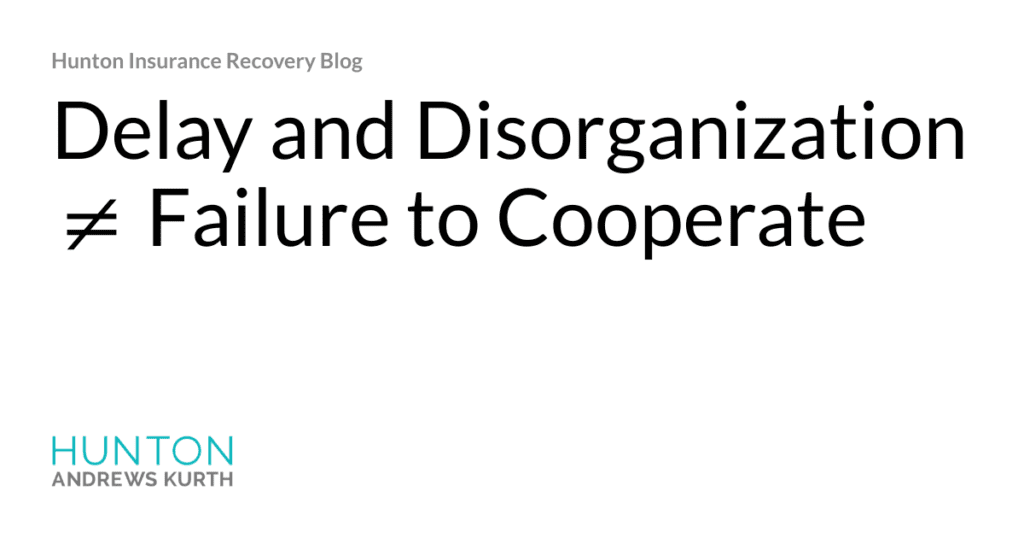Delay and Disorganization ≠ Failure to Cooperate

Insurance policies usually have cooperation clauses requiring policyholders to work with the insurance company when making a claim. These clauses ensure policyholders actively participate in claims investigations. Failure to cooperate may be a breach of the policy, and the insurer may deny coverage.
Proving non-cooperation, though, is challenging, as seen in a recent Eighth Circuit case, Cardinal Building Materials, Inc. v. Amerisure Insurance Company.[1] Amerisure claimed that its insured, Cardinal, had failed to cooperate in investigating Cardinal’s tornado claim.[2]
Both parties describe a 20-month correspondence that appears, charitably, frustrating. Fed up, Cardinal filed suit.
Amerisure argued non-cooperation as a defense based on policy language that required Cardinal to sit for an examination under oath,[3] produce records and provide a proof of loss. But the policy did not have a general cooperation clause that might require Cardinal to perform additional acts not listed in the policy.
Under Missouri law, insurers must prove three things to deny coverage for non-cooperation:
1. A material breach of the cooperation clause;
2. Substantial prejudice due to the breach; and
3. The insurer made reasonable efforts to obtain cooperation.
Amerisure alleged Cardinal breached the cooperation clause by providing disorganized documents months late.[4] But Cardinal did eventually provide Amerisure all the relevant documents it had. And so, the Eighth Circuit believed a jury could still find that Cardinal’s “plodding pace and lack of organization” wasn’t material non-cooperation that caused Amerisure substantial prejudice. The Eighth Circuit vacated the district court’s ruling to the contrary.
The court emphasized the cooperation clause’s specificity compared to general cooperation clauses. General clauses require, for instance, an insured’s “full cooperation.” But specific clauses list tasks the insured must perform to assist in the investigation. To win summary judgment based on specific clauses, insurers must point to specific acts that the policyholder failed to perform. Amerisure couldn’t do that. Nothing in the policy required Cardinal to produce documents in a particular form or on any timetable.
Not all cooperation clauses are created equal. Insurers who wield them like a cudgel may find themselves holding a twig. Policyholders facing non-cooperation arguments should seek legal advice to effectively navigate such situations.
[1] No. 23-1508, 2024 WL 1337438 (8th Cir. Mar. 29, 2024) (applying Missouri law).
[2] This was a supplemental claim. Amerisure paid Cardinal over $1.5 million for property damage. A year later, Cardinal asked Amerisure to reopen its file to consider additional losses, presumably after discovering newly found damage from the tornado or incurring repair costs exceeded the $1.5+ million estimate.
[3] Amerisure did request an examination under oath, and Cardinal complied.
[4] In fairness, this is a vast oversimplification. Check out the briefs.



